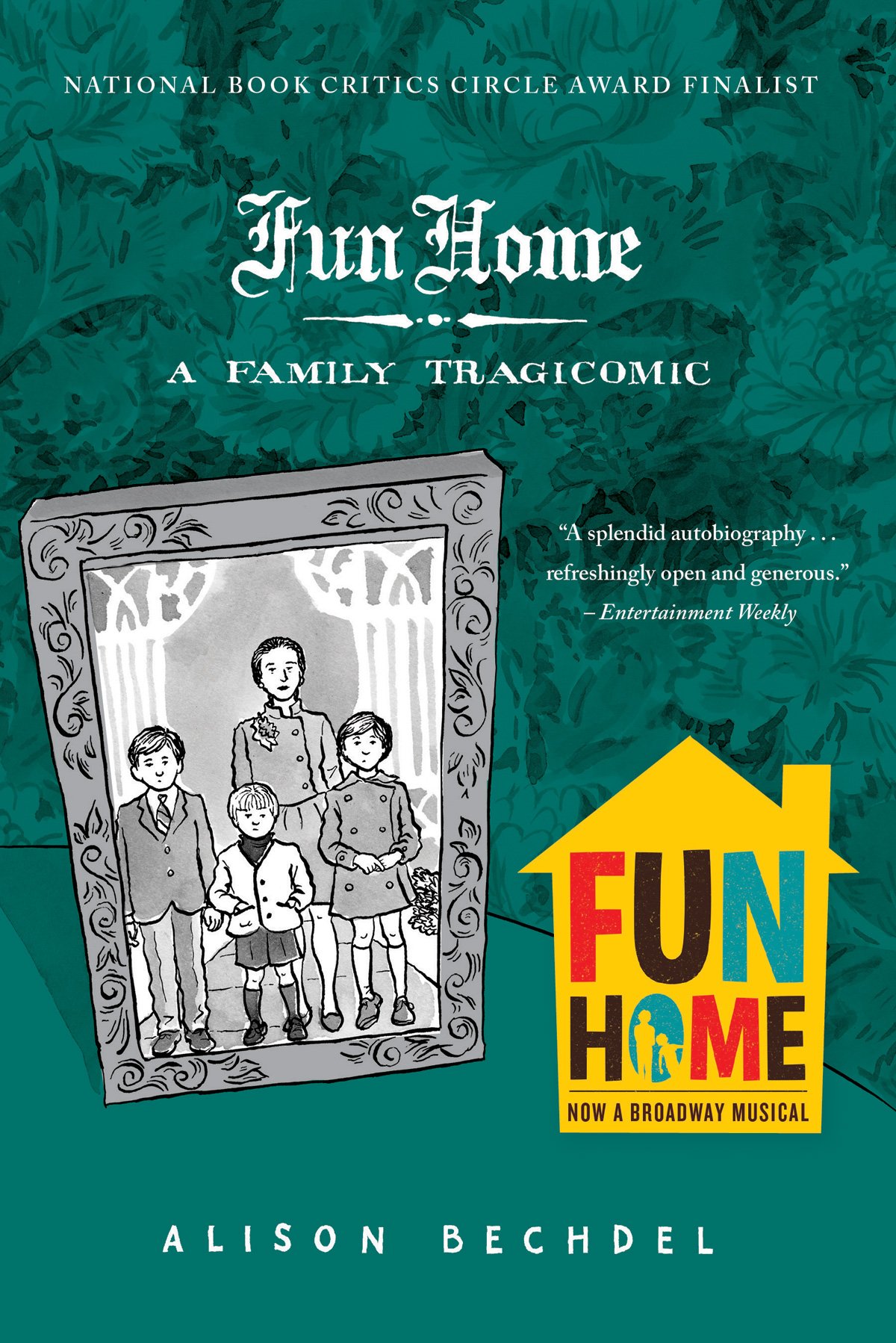Books |
Fun Home
Alison Bechdel
By
Published: May 03, 2015
Category:
Drama
A few days before the Tony nominations were announced, my wife had the good sense to buy tickets for “Fun Home.” Smart wife. “Fun Home” got a dozen nominations. And now it’s won five Tonys, including Best Musical. Good luck getting tickets.
What attracted us? The stunned reactions of friends who had seen it, for one. But even more, Ben Brantley’s rave review in the Times — “This impeccably shaded portrait of a girl and her father occupies the place where we all grew up, and will never be able to leave.”
The story, in outline, is about a father and a daughter. The girl is Alison Bechdel, a lesbian who grows up to be a cartoonist. Her father is Bruce Bechdel, who she describes as “a manic-depressive, closeted fag.” A few weeks after she tells her parents she’s gay, her father is killed — Bechdel is convinced it was suicide — by a Sunbeam Bread Truck.
We did wonder: This is a musical?
We bought three tickets. One’s for the small person, now 13. Partly because she seems ready for the occasional “grown-up” movie or play. But largely because the Reader Comments in the Times suggested “Fun Home” is a legendary achievement:
I haven’t seen an audience react to something like this, tears of laughter and sorrow, since “A Chorus Line.”
It took only about a minute and a half to see what this magnificent creative team was up to and no more than another 30 seconds for this straight, middle-aged guy to dissolve into tears.
The most profound work of art I have ever seen dealing with the crowd of “thems” and “mes” that are our constant companions, whether we embrace or scorn them.
[To buy tickets, click here.]
Because I was unsure about bringing the small person to a show with suicide and homosexuality, I did the sensible parental thing and read the 2006 “family tragicomic” that inspired the musical.
First, the Alison Bechdel story. For 25 years, she published her comic strip, Dykes to Watch Out For. It was widely syndicated, but as the Internet grew, her outlets decreased. Time for a book. Time magazine called “Fun Home” one of the best books of 2006. It was a finalist for a National Book Critics Circle Award. And in 2014, Bechdel won a MacArthur “Genius” Award. If you’ve never read her, you may still know her name: She’s the creator of the “Bechdel test.” It asks readers to examine fiction and film for scenes that have two women talking. To pass the test, they must be talking about something other than a man. Extra points if both women have names.
In 2014, the South Carolina House of Representatives cut funding for the College of Charleston by $52,000, the cost of a summer reading program that included “Fun Home.” I understand those Republicans: “Fun Home” is more than a guided tour of an unusual family, it is a disturbing work of art. Yes, art. “Fun Home” isn’t a comic book with superheroes and superfreaks, it’s a powerful scrapbook of drawings that look like photos with brilliant captions and eloquent dialogue bubbles. As an examination of the ways our personal lives are effected by cultural politics, and vice versa, this as good a memoir as any you can name. [To buy the paperback from Amazon, click here. For the Kindle edition, click here.]
How do you mourn an undertaker who dies? Alison’s at college when she hears the news; she cries for two minutes. At home, she and one of her brothers greet each other with “ghastly, uncontrollable grins. Standing at her father’s coffin in her small Pennsylvania town (population: 800), Alison thinks: “I’d kill myself too if I had to live here.” But that’s just a first draft reaction. Her father was gay, she is gay, and yet no bond formed between them. Some of that is historical. It’s 1980, after feminism and Stonewall; Bruce was born too late. But it’s also personal, and for that, you want to read the book.
Actually, you want to read it twice. Once for the story, once for the art. Hype? Read it once. You’ll see.


